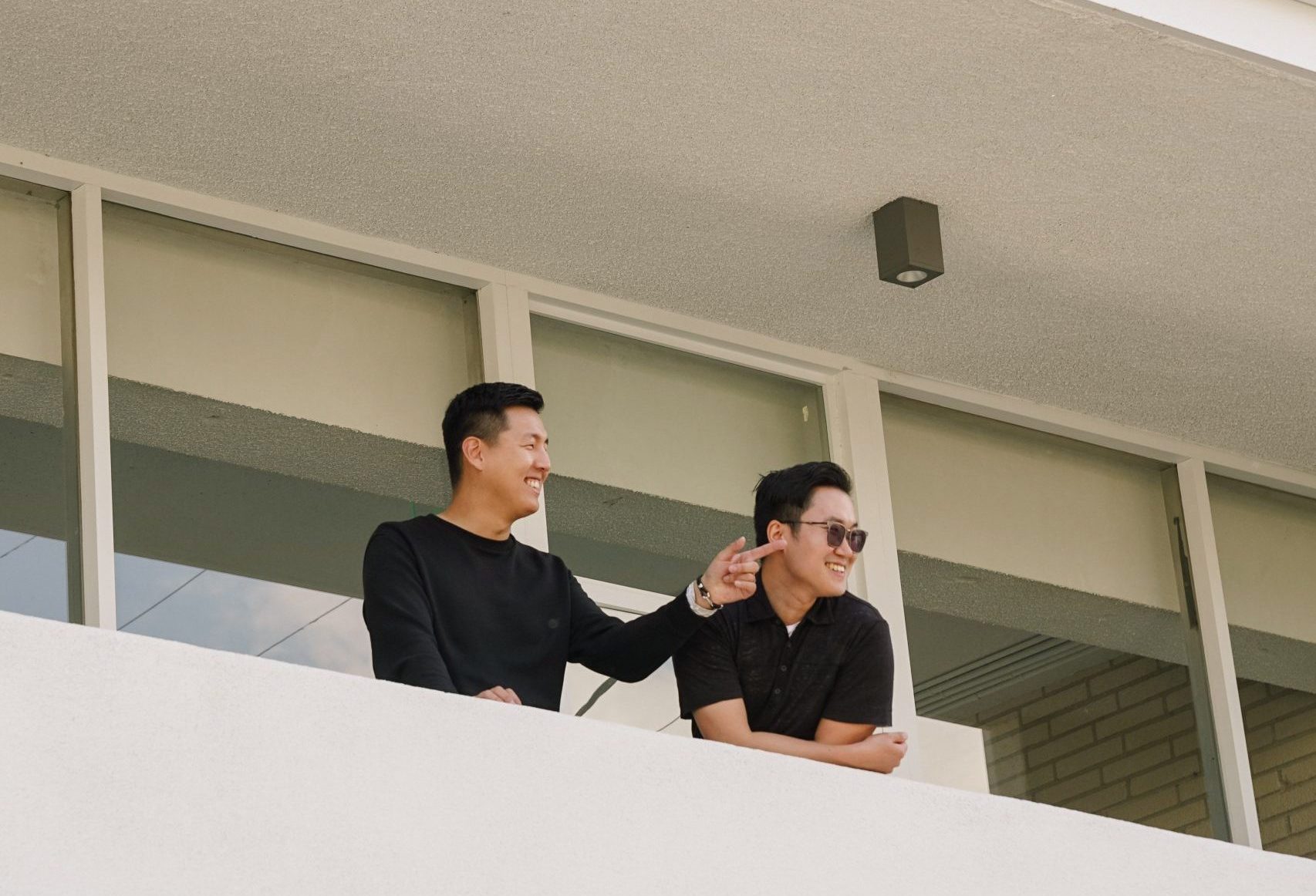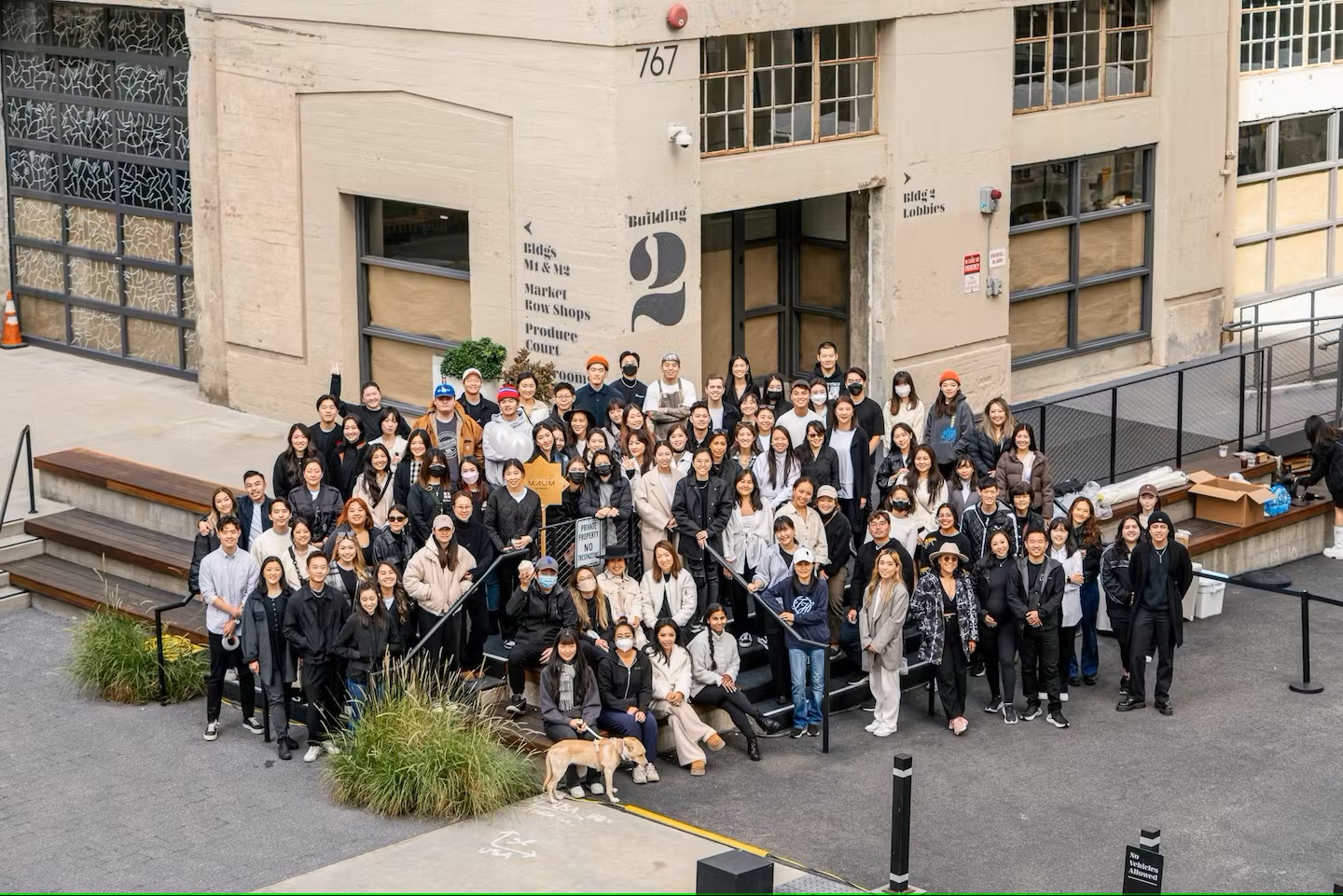[Next Gen Leader: Arnold Byun & Kioh Park – MAUM Market]
Tea and rice cake, beaded bracelet and jade ring, modern ceramic and traditional pottery.
Such unique combinations are the hallmark of LA’s MAUM Market. This pop-up marketplace showcases a collaborative spirit among Asian-owned local businesses, aiming to highlight under-recognized talents and foster a community-driven approach to business.
MAUM Market strategically pairs business owners to encourage collaboration and synergy, moving beyond competition to a united front that elevates Asian cultures and talents. The essence of the marketplace is to raise awareness of Asian cultures and to nurture Asian talents.

Co-founders Kioh Park and Arnold Byun, drawing from their personal experiences as Asian immigrants in the U.S., envisioned MAUM as a collaborative marketplace, and this was only possible because they knew what it is like to live in the U.S. as an Asian immigrant, they explained.
Arnold Byun, 28, arrived in the U.S. with his father, settling in Torrance and identifying as a ‘1.5 generation immigrant’. Also born in Korea, Kioh Park, 33, grew up in Shanghai, China, until he came to the U.S. in 2017, making himself technically a first-generation immigrant to the U.S.
The pandemic brought Park and Byun together through a mutual friend, leading them to brainstorm a ‘fun project’, like any other of their age. “We come from a different living environment, but we felt the same that we have similar cultural backgrounds,” Park said. Before they met, Park was working at a Chinese projector screen manufacturer company in LA. On the side, Park founded a tea brand called ‘Kioh Tea’. Quite differently, Byun graduated hospitality and management major in New York and was working in the fine dining industry.
Beginning with a small pop-up that paired rice cakes and tea for Chuseok, their partnership flourished. It evolved into ‘Hangeul’, an event marrying Korean tea with art and education, and ‘Hyang’, a sensory experience of tea and incense, laying the groundwork for MAUM Market and their co-founded company, Made with MAUM.

“Maum means ‘heart’ in Korean. MAUM is a people’s business, and we believe in people who participate in our marketplace. It is focused on the community rather than profit, which is why we came up with this idea of Asian focused marketplace,” said Byun.
The name ‘Made with MAUM’ embodies the founders’ philosophy, prioritizing heart and craftsmanship in their marketplace operations. Park emphasizes the concept of ‘maum’ in selecting vendors. “Thankfully, there are a lot of Asian-owned businesses that want to join the MAUM market. Our priority of standard in approving a vendor to join us is first of all that they are small businesses making small batches of handmade goods,” said Park.
“MAUM champions artisanal production, valuing the heartfelt craftsmanship that distinguishes their offerings from mass-produced goods. “We also look at whether it has its own, unique brand. This is important because we believe that they have the ‘maum’ value and also they are the ones that truly need the attention of the audiences.”
“To date, MAUM Market has showcased over 1000 Asian-owned businesses, spanning a diverse range of products from gourmet pastries to unique pet toys and fashion. “We call it an incubator for Asian cultural products,” said Park. Some brands like Picky Wicky kimchi, which makes ‘boutique-style kimchi’ are examples of MAUM’s nurturing care. Beverage brands that started to be shown public first at MAUM are also some of the ones that went through their nurture system and now get orders from Whole Foods.
MAUM is a marketplace for Asian-owned businesses, but the event itself is for everyone. It is also what MAUM aims for, which is to bring Asian talent to the broader society where everyone can appreciate their talented works. “It is for whoever lives in LA. To see people from different ethnicities come and enjoy the work of MAUM and participating businesses is like a reward for us,” said Park.
“Byun stresses the importance of providing a platform for emerging businesses, acknowledging the challenge many small ventures face in gaining visibility, saying “Many of them simply do not have a platform to sell or make themselves popular. Here at MAUM, the audience is already curated, and they want to support small businesses. This is also another collaboration that society needs so that anyone can get public exposure for their talent.”
A marketplace solely dedicated to the Asian community business owners is a concept developed from Park and Byun’s personal experiences and their desire to strengthen the Asian community’s presence in the U.S. “As an Asian living in the U.S., sometimes we are still foreigners. When I was talking to people from immigrant families, I realized that they call themselves Korean Americans, not just Americans. People don’t say French Americans or German Americans. I think there is a difference here. So, it is important that people from a similar culture come together to make a united platform to stand for ourselves,” said Park.
The MAUM Market also serves as a hub for reunions. Vendors and pop-up store visitors often encounter childhood friends, acquaintances, or relatives, fostering a sense of community and belonging. “Natural and organic conversation and reunion happen here. This is cool because it is like a gathering place. It feels safe, and it feels like a community. Without having to explain about themselves, they naturally feel at home among others who share their appearance, language, and cultural heritage,” said Byun.
Park expresses a desire for the Korean-American community to further develop and showcase their traditional culture and artists, aspiring for progress that matches or exceeds that of other ethnic communities.
“I think it is also related to the immigration history. Koreatown in LA is the biggest Korean community, and there are a lot of Korean restaurants. However, there are not many stores or marketplaces that sell Korean traditional products or that showcase Korean artists,” said Park. “Park contrasts the motivations behind Korean immigration to the U.S. with those of Chinese or Japanese immigrants, noting that many Koreans sought escape from poverty while others sought broader opportunities for a better life. “This is why many Korean immigrants from our parents’ generation started laundry or liquor shop businesses. They had no time and money to enjoy or live a life where they could take time to fall in love with art and city culture.”
He then pointed out the unique value of Korean arts and crafts and the popularity that it has been raised recently. “Old Korean jewelry boxes and traditional artworks are some of which are gaining popularity recently. This means there are souls and value in such products. It is our mission to highlight Asian arts and crafts within the broader society, aiming to earn them the recognition and appreciation they deserve.”
The MAUM Market expands across LA, Orange County, and New York, and it is set to celebrate its next event on Lunar New Year’s Day, February 10, at ROW DTLA (777 S Alameda St.) from 12 to 4 p.m.
BY HOONSIK WOO [woo.hoonsik@koreadaily.com]

![Korean Woman Deported After Using Altered Passport Name Old and new Korean passport [JoongAng Photo]](https://www.koreadailyus.com/wp-content/uploads/2025/06/0630-passport-100x70.jpg)
![Korean homeless residents face eviction from LA-subsidized housing Hyun Park(left), a long-term resident of a homeless rental housing unit, speaks with KYCC Director Rick Kim (far right). [Sangjin Kim, The Korea Daily]](https://www.koreadailyus.com/wp-content/uploads/2025/06/0630-homeless-100x70.jpg)

